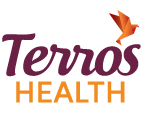How can we curb drug abuse
Substance abuse
Early detection, intervention
While current actions are a step forward in the war on drugs, we must also focus on early detection and intervention. Much has been said about the meteoric rise of drug abuse in America. What hasn’t been talked about enough are comprehensive strategies for addressing the problem.
That’s not to say that nothing has been done. The Comprehensive Addiction and Recovery Act of 2016 will expand access to naloxone (which can counter the effects of an opioid or heroin overdose) to first responders, help states monitor and track prescription drug diversion, and expand community drug prevention and education programs
The Compact to Fight Opioid Addiction, signed by Arizona Gov. Doug Ducey and 45 of his counterparts, also will reduce inappropriate prescribing of opioids, improve understanding of the escalating drug problem and find new recovery methods for those challenged by addiction. While these actions are a positive step forward in the war on drugs, we must also focus on early detection and intervention.
The starting point for this effort is whole health integration.
Physical and mental health conditions used to be treated in silos, but this is starting to change. At Terros Health, we have begun treating the “whole” person and the outcomes have been promising. In some cases, our behavioral health strategies are applied to treating chronic physical ailments like diabetes.
For those with an addiction, the integration of physical and mental health care is especially beneficial, because primary care doctors can identify the signs of drug use and abuse in their early stages. This is significant given that approximately 40 million Americans are dealing with a milder form of drug use called “medically harmful substance abuse.”
More needs to be done
In treating the “whole” person, we must help those suffering from chronic pain by uncovering the source of their pain and evaluating alternatives to prescription drugs.
As a community we also must recognize what addiction is and how people can become addicted to opioids and other drugs, too. That means shedding the stigma associated with drug abuse and looking at addiction in a non-judgmental way.
Dr. Robert Allen is a primary care physician at Terros Health, which provides whole health care for those facing complex health conditions including mental illness and drug addiction.
